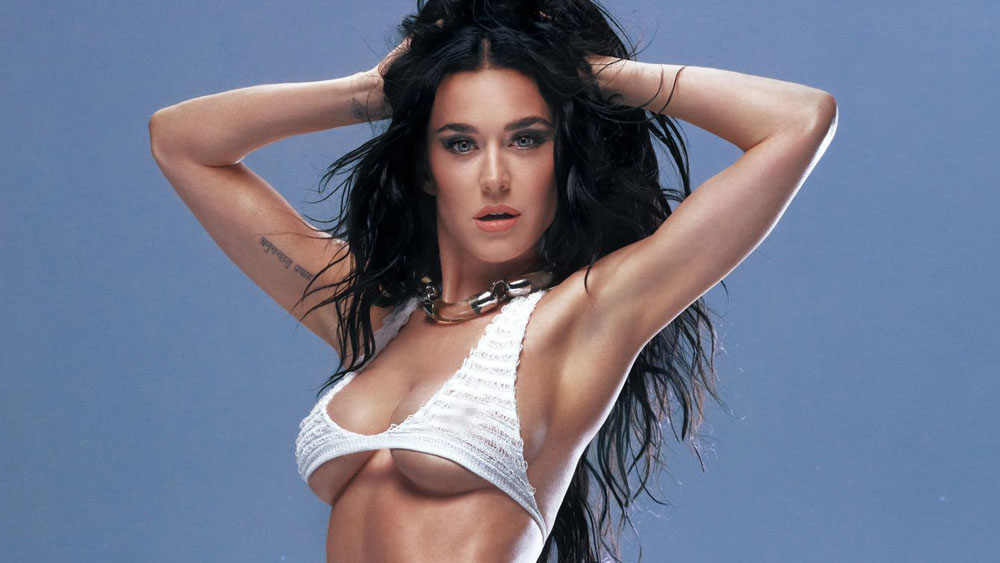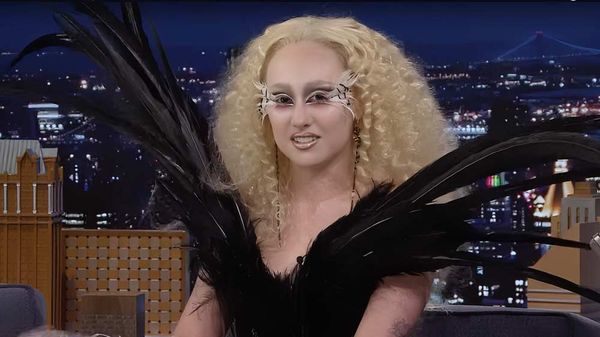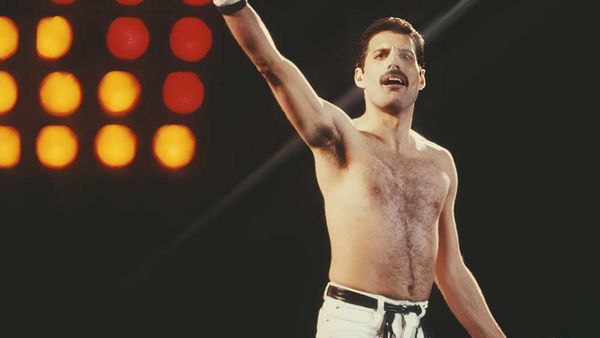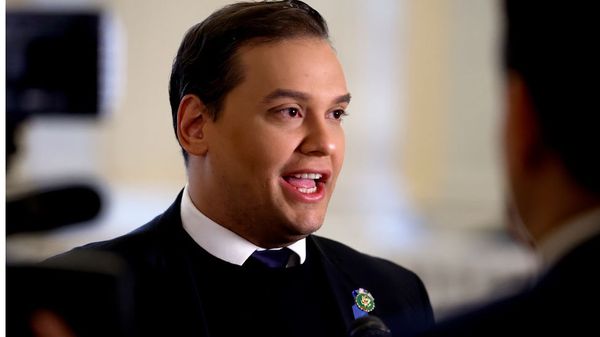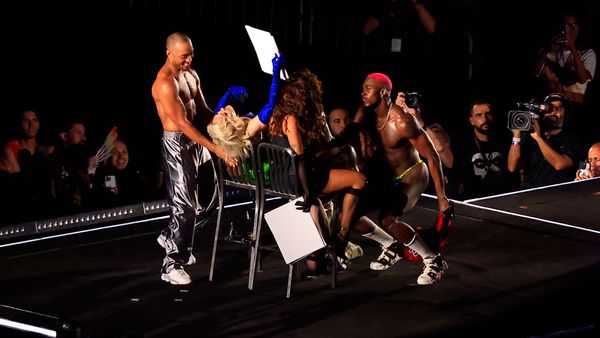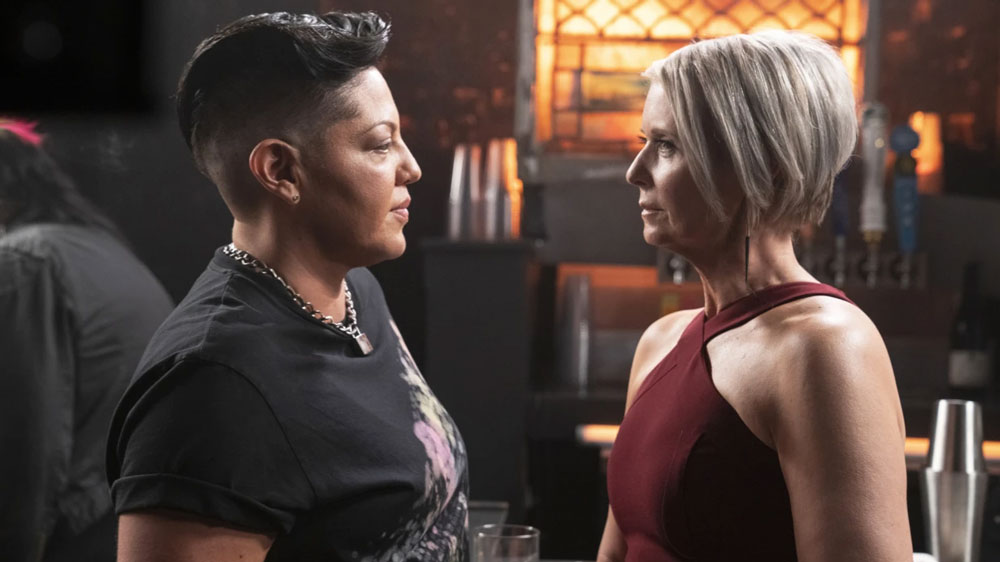
May 19
Cynthia Nixon Claims 'Sex and the City' Was Poorly Received Because of Its Gay Sensibility
READ TIME: 4 MIN.
A core audience for HBO's "Sex and the City" has been gay since the edgy comedy premiered on HBO in 1998. But was the show about gay men in the disguise of four 30-something, professional women living in New York City? Such a theory became a meme about the show that persisted, largely because to the ease the women had with sex (especially Kim Cattrall's Samantha Jones) and the frankness of its subjects it cheekily explored. The show was based on column in the New York Observer by journalist Candace Bushnell, which she turned into a book and was developed by Darren Starr into a cultural phenomenon that ran six seasons (94 episodes) and two films. When a proposed third film fell through, largely due to Cattrall's unwillingness to take part in it, a television sequel was planned. "And Just Like That..." premiered on HBO in December 2021, picking up the lives Carrie Bradshaw (Sarah Jessica Parker), Charlotte York Goldenblatt (Kristen Davis), and Miranda Hobbes (Cynthia Nixon), now older but not necessarily all the wiser and certainly wealthier. The sequel has been successful – it is currently filming its third season; but wasn't all that well-received, in part because its attempt at inclusivity felt forced. Che Diaz anyone?
But in remarks the show's out co-star Cynthia Nixon addressed the reception of the initial series in 1998 before an audience on Friday morning at the 90th Annual Drama League Awards. "I feel like 'Sex and the City' is now so enshrined in memory and sentimentality but people hated us at first," she shared.
"They kept saying over and over, 'These aren't really women, these are gay men in disguise. Women don't talk like this. Women don't talk about sex like this.'"
In reality, a quick survey of reviews of the original show available on the web that gay taint was mentioned, if at all. Instead what critics found wanting was the show's creativity, diversity (even in 1998) and believability. Early on, it was a bit hard to swallow struggling writer Carrie Bradshaw spending hundreds of dollars on her Manolo Blahniks while all but claiming poverty. It did open up sexual subjects that were pretty much not discussed on network television, which gave the show's its edge; but the gay meme developed in part because showrunner Darren Star was out and was comfortable with pushing the envelope of sexual topics familiar with gay men on television.
It was something that Nixon feels its much-maligned sequel achieves as well. "I think that's what's so great about 'And Just Like That," she said. "We keep pushing the boundaries. We're not going to do the same old stuff that was once shocking that you've now got used to."
Curiously, one of the big complaints of the reboot was how Miranda Hobbes had been body-snatched. She was no longer the tart, (okay, cranky) assertive feminist force she was on "Sex and the City," instead was this caricature of a middle-aged woman in crisis, who has lost her confidence and succumbed to the assertive moves of stand up comic/podcast host Che Diaz in Carrie's kitchen while their bedridden host peed the bed, ignored in her cries for help. It was meant to be funny, but backfired; immediately shading Che as smug and self-absorbed. The character, played by Sara Raminez, was meant to be the non-binary check-off on the show's woke sensibilities; but she quickly became the show's most contentious character, and poor Miranda became a dewy-eyed romantic, the last phase of her body-snatch.
And part of that "same old stuff" Nixon may be referring to is Che Diaz, who was dumped from the show's third season in February. Variety reported. They summarized the Miranda/Che story arc this way: "In the first season of 'And Just Like That,' Che, who had a podcast with Carrie (Sarah Jessica Parker), swept Miranda (Cynthia Nixon) off her feet, causing her marriage to Steve (David Eigenberg) to end. At the end of Season 1, Che and Miranda went to Los Angeles, where Che was filming a pilot. Throughout the second season, the couple's once-passionate relationship deteriorated, and they broke up."
In January the Daily Mail speculated that Ramirez would not be returning to the show because of their political views on the Gaza War. They are pro-Palestinian and outspoken on Instagram. On one post they wrote: "Our industry is so duplicitous,' the former Grey's Anatomy star wrote, the night after the Emmy Awards." While they give awards away, casting directors and agents are making blacklists of actors and workers who post anything in support of Palestinians in Gaza to ensure they will not work again."
But sources close to the show told Variety that Ramirez's political views did not enter into the decision, rather her story arc had concluded. In an interview in August with "And Just Like That" showrunner Michael Patrick King after the Season 2 finale, he discussed how the Che character had evolved over the two seasons of the Max hit. "Every time people say they don't like Che, I go, 'You mean you don't like standups!,'" King said. "I mean, you're standing on stage asking people to think you're art. It's a lot, that character. The audience got to see other sides, which is all you're supposed to be doing if you get more than one season."
But then he added: "And about the interaction between Miranda and Che in the finale, King said, "Hopefully, at the end, they're like, "Good they're not together, and they never will be."
